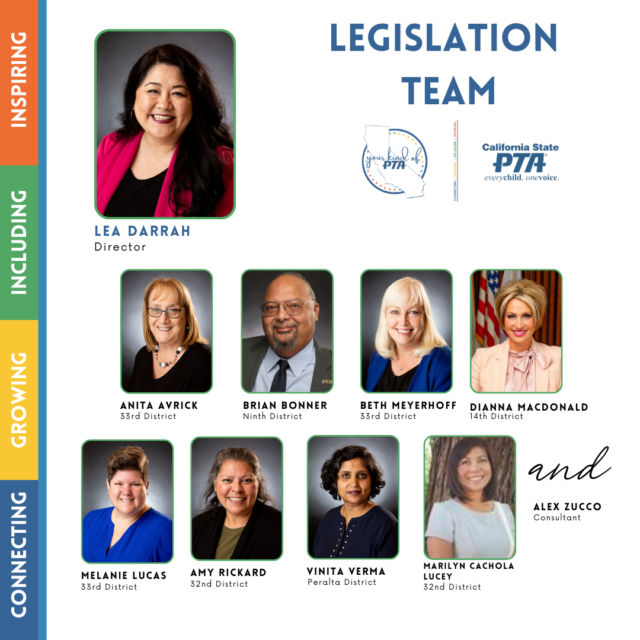This is an evolving situation. Check back regularly for updates as new information becomes available.
The Crisis
The federal government shutdown has resulted in the suspension of SNAP (Supplemental Nutrition Assistance Program) benefits for more than 40 million Americans—including 5.5 million Californians. In California, SNAP is known as CalFresh. This crisis represents a loss of $1.1 billion in monthly food assistance for California families.
SNAP/CalFresh provides monthly grocery assistance loaded onto an EBT card that families use to purchase food at grocery stores and authorized retailers. While EBT cards themselves continue to work for any remaining balance from previous months, new benefits have not been loaded since November 1, 2025.
Why This Matters for California’s Children
California PTA advocates for the education, health, safety, and well-being of every child. Food security is foundational to this work. Children cannot reach their full potential when they are hungry.
Nearly 40% of SNAP recipients nationwide are children. Research shows that food insecurity directly undermines student success:
- Academic achievement: Lower reading and math scores
- Social development: Falling behind peers academically and socially
- Behavioral health: Increased risk of anxiety, hyperactivity, and aggression
- School readiness: Children cannot arrive at school ready to learn with healthy minds and bodies
Understanding the Gap
While California’s universal school meals program ensures all students receive free breakfast and lunch during school days, CalFresh/SNAP provides critical support for all other meals. Families rely on CalFresh to provide dinner every night, meals on weekends and holidays, and food throughout the summer.
Without CalFresh, families face an impossible gap. School meals cover only two meals on school days, leaving families struggling to provide dinner daily, plus all meals during non-school time. This crisis directly impacts student health, well-being, and academic success.
Timeline: An Evolving Crisis
November 1, 2025 – SNAP/CalFresh Benefits Suspended. Due to the federal government shutdown, SNAP benefits are not being loaded onto EBT cards. This is the first time in the program’s history dating back to 1964 that benefits have been completely suspended.
November 1, 2025 – Legal Action Underway. California, along with more than 20 other states and the District of Columbia, has filed lawsuits challenging the suspension as unlawful. The lawsuits argue that the U.S. Department of Agriculture has both the authority and legal duty to use nearly $6 billion in contingency reserve funds appropriated by Congress specifically for emergencies like this shutdown.
Multiple governors from both Republican and Democratic states have declared states of emergency and are working to provide temporary state-funded assistance. However, these are short-term solutions that cannot fully replace federal SNAP funding.
November 3, 2025 – Trump Administration Provides Partial Funding. In court filings responding to judicial orders, the Trump administration announced it would use all $4.65 billion in SNAP contingency reserve funds to provide approximately 50% of November benefits to eligible households. The administration declined to use additional available funds from the Agriculture Department’s Section 32 Child Nutrition Programs, stating those funds “must remain available to protect full operation of Child Nutrition Programs throughout the fiscal year.” The administration indicated it would need at least $4 billion in additional government funds to provide full SNAP benefits.
This means families will receive only half their expected November food assistance, creating an even greater gap in their ability to provide meals.
November 4, 2025 – National PTA creates more opportunities for units and members to use their voice. Given the ongoing need for advocacy, National PTA has reopened its letter to Congress and the USDA. If you are interested in adding your California State PTA unit, council, or district to the letter, first, your Executive Board needs to vote to approve signing on the PTA, then fill out this form by Friday, Nov. 7 at 12:00 p.m. ET. National PTA is also encouraging individuals to take action and send a message urging Congress to end the shutdown by reaching an agreement that prioritizes our nation’s children, families, and schools!
Ongoing – California’s Response. Governor Newsom has fast-tracked $80 million in state funding to support food banks across California and deployed National Guard troops to assist with food distribution. Despite these efforts, demand far exceeds available resources.
This timeline will be updated as the situation develops.
Resources for PTA Leaders
California PTA has developed comprehensive resources to help you support families in your community:
- Standing with Families: CA PTA Guidance During the SNAP Crisis A 4-page guidance document for PTA units, councils, and districts with detailed information on what PTAs can and should do in response to this crisis, what PTAs should NOT do to stay in compliance with nonprofit regulations, and comprehensive background on SNAP and how it relates to California’s universal school meals program.
Download the guidance document for PTA leaders [English | Spanish]
- Food Assistance Resources for California Families A 2-page ready-to-distribute resource flyer with immediate help resources including 2-1-1 California, local food bank directory, CalFresh/SNAP updates, WIC program information, and links to CA PTA resources. Print this resource and share it widely—post it at schools, include it in newsletters, email it to families, share on social media, and distribute at PTA meetings.
Download the family and community resource flyer [English | Spanish]
- California PTA Statement on SNAP Benefits Suspension Read our November 1, 2025 statement calling for immediate federal action to restore SNAP benefits, emphasizing that 5.5 million Californians (including hundreds of thousands of children) have lost access to SNAP benefits and urging immediate release of federal contingency funds.
Read the full statement at capta.org/news-publications/news-press-releases
- National PTA Letter to Congressional Leaders On October 31, 2025, National PTA sent a formal letter to Congressional leadership and administration officials urging immediate release of SNAP contingency reserve funds. California PTA joined hundreds of PTAs across the nation in co-signing this letter within just 24 hours—demonstrating the urgency our members feel about protecting children’s access to nutrition. Read the National PTA letter
